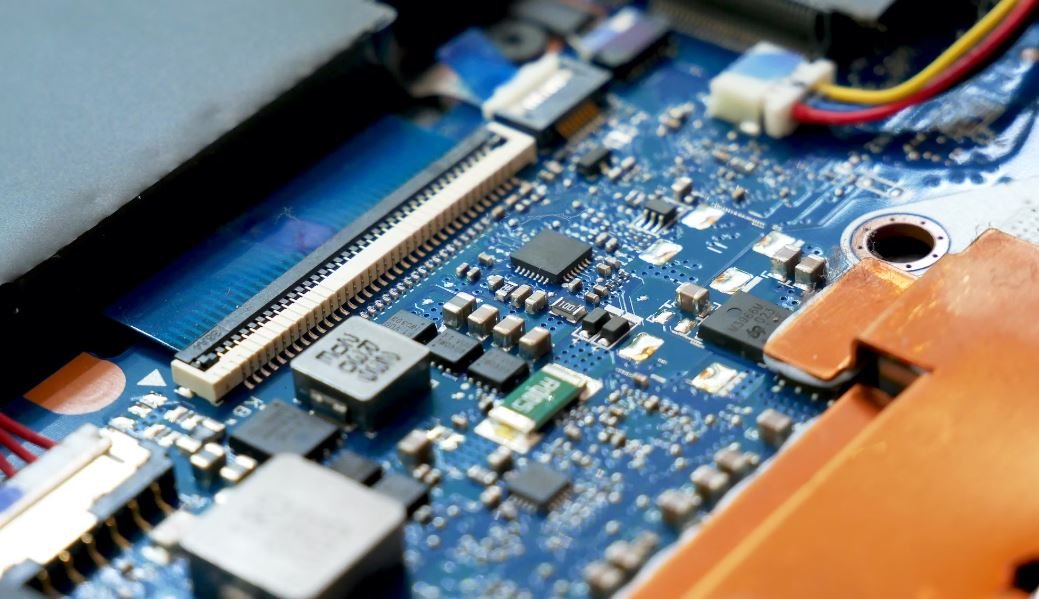Top AI Apps
The field of Artificial Intelligence (AI) has witnessed significant advancements in recent years, leading to the development of various AI applications that are changing the way we live and work. From virtual assistants to image recognition tools, AI apps have become an integral part of our daily lives. In this article, we will explore some of the top AI apps that are revolutionizing industries across the globe.
Key Takeaways:
- AI apps have transformed industries by automating processes and enhancing efficiency.
- Virtual assistants like Siri and Alexa have become widely popular, improving user experience.
- Machine learning algorithms enable AI apps to learn and adapt, improving accuracy over time.
- AI apps in healthcare have the potential to revolutionize patient care and diagnosis.
1. **Siri**: Apple’s virtual assistant, Siri, utilizes natural language processing and machine learning algorithms to provide personalized assistance to its users.
2. **Alexa**: Developed by Amazon, Alexa is a virtual assistant that utilizes voice recognition technology to perform various tasks, such as playing music or controlling smart home devices.
3. **FaceApp**: This popular image editing app uses AI algorithms to apply various filters and effects to user’s faces, giving them a glimpse of how they might look as they age.
4. **Google Photos**: Google’s photo management app utilizes AI technology to automatically tag and organize photos based on the content, making it easier for users to search and find specific images.
5. **Cortana**: Microsoft’s virtual assistant, Cortana, provides personalized assistance to its users, offering recommendations, reminders, and performing tasks based on user preferences.
6. **Prisma**: This photo editing app uses AI algorithms to transform photos into artistic pieces by applying various artistic filters inspired by renowned artists.
*AI apps have revolutionized the user experience by providing personalized assistance and automating tasks.*
AI Apps in Healthcare
AI applications have made significant advancements in the healthcare sector, enabling improved patient care and diagnosis. Here are some notable AI apps in healthcare:
| AI App | Functionality |
|---|---|
| **IBM Watson** | IBM Watson utilizes natural language processing and machine learning to assist healthcare professionals in diagnosis and treatment recommendations. |
| **Ada** | Ada is an AI-powered symptom checker that helps individuals assess their symptoms and provides personalized health recommendations. |
*AI apps in healthcare facilitate more accurate diagnosis and personalized treatment recommendations.*
AI Apps in Finance
The financial sector has also benefited greatly from AI applications. Here are some notable AI apps in finance:
- **Robinhood**: A popular investment app that leverages AI algorithms to offer personalized investment recommendations and real-time market data.
- **Zest Finance**: This AI-powered platform helps financial institutions assess creditworthiness by analyzing vast amounts of data and identifying risk patterns.
*AI apps in finance improve the efficiency of operations and enhance decision-making processes.*
AI Apps in Customer Service
Many companies are utilizing AI apps to enhance their customer service offerings. Here are two examples:
| Company | AI App |
|---|---|
| **Amazon** | Amazon’s AI-powered customer service chatbots are capable of answering customer inquiries and resolving issues efficiently. |
| **LivePerson** | LivePerson offers AI chatbots that can provide personalized assistance to customers, improving the overall customer service experience. |
*AI apps in customer service improve response times and enhance customer satisfaction.*
The use of AI apps continues to expand across various industries, transforming the way we interact with technology and improving numerous processes. Whether it’s in healthcare, finance, or customer service, AI apps offer enhanced efficiency and personalized experiences. Embracing AI technology allows businesses and individuals to stay ahead in today’s rapidly evolving digital landscape.

Common Misconceptions
Misconception: AI apps can completely replace humans in various industries.
- AI is designed to complement human tasks, not replace them entirely.
- AI apps lack human creativity and critical thinking abilities.
- Human supervision is still necessary to ensure the accuracy and ethical implications of AI-generated decisions.
One common misconception about AI apps is that they are capable of completely replacing humans in various industries. While AI has made significant advancements in automation and cognitive abilities, it is important to remember that AI is designed to complement human tasks, not replace them entirely. AI apps lack the human creativity and critical thinking abilities that are often required for complex decision-making. Ultimately, human supervision is still necessary to ensure the accuracy and ethical implications of AI-generated decisions.
Misconception: All AI apps are capable of achieving human-level intelligence.
- Current AI technology is specialized and limited to specific tasks.
- Deep learning algorithms have made significant strides, but they do not possess general intelligence.
- AI apps can only mimic human-like behavior within a narrow scope.
Another misconception is that all AI apps are capable of achieving human-level intelligence. In reality, current AI technology is highly specialized and limited to specific tasks. Deep learning algorithms have made significant strides in areas such as speech recognition and image classification, but they do not possess general intelligence that enables them to understand and solve problems across a wide range of domains. While AI apps can mimic human-like behavior within a narrow scope, they lack the broader cognitive abilities that humans possess.
Misconception: AI apps are always unbiased and objective.
- AI algorithms can inadvertently reflect the biases and prejudices present in training data.
- Human biases can be amplified and perpetuated by AI systems.
- Constant monitoring and evaluation are required to detect and mitigate biases in AI apps.
AI apps are often assumed to be unbiased and objective, but this is not always the case. AI algorithms are trained on large datasets that can inadvertently reflect the biases and prejudices present in society. This means that human biases can be amplified and perpetuated by AI systems. Constant monitoring and evaluation are essential to detect and mitigate biases in AI apps. It is crucial to ensure that AI systems are trained on diverse and representative datasets to minimize the risk of biased decision-making.
Misconception: AI apps will lead to massive job losses.
- AI technology creates new opportunities and job roles.
- Jobs may be transformed, requiring new skills and training.
- Collaboration between humans and AI can result in improved productivity and efficiency.
There is a common fear that AI apps will lead to massive job losses. While it is true that AI technology has the ability to automate certain tasks, it also creates new opportunities and job roles. Rather than replacing jobs, AI may transform them, requiring humans to acquire new skills and training to work alongside AI systems. Collaboration between humans and AI can result in improved productivity and efficiency, with humans focusing on tasks that require creativity, critical thinking, and emotional intelligence.
Misconception: AI apps will take control and dominate the world.
- AI systems are designed to be tools and extensions of human intelligence.
- AI apps are developed and controlled by humans.
- Misuse of AI technology is a concern, but ethical guidelines and regulations can mitigate risks.
There is a common misconception that AI apps will take control and dominate the world. However, it is important to remember that AI systems are designed to be tools and extensions of human intelligence. AI apps are developed and controlled by humans, and they operate within the boundaries set by their programming and data inputs. While the misuse of AI technology is a legitimate concern, the implementation of ethical guidelines and regulations can help mitigate risks and ensure that AI is used for positive and beneficial purposes.

Artificial Intelligence Apps in the Healthcare Industry
In recent years, artificial intelligence (AI) has made significant advancements in various industries, including healthcare. The following table showcases some of the top AI applications that are revolutionizing the healthcare sector:
| App Name | Function | Benefits |
|---|---|---|
| IBM Watson | Diagnosis support | Improved accuracy, reduced diagnostic errors |
| PathAI | Pathology analysis | Quicker and more precise cancer diagnoses |
| Butterfly iQ | Ultrasound imaging | Portable and affordable imaging solution |
AI-Powered Virtual Assistants
Virtual assistants have become pervasive in our daily lives, assisting us with various tasks. Here are some AI-powered virtual assistants that offer unparalleled convenience:
| Assistant | Key Features | Applications |
|---|---|---|
| Alexa | Voice commands, smart home integration | Home automation, entertainment |
| Google Assistant | Contextual understanding, personalized responses | Information retrieval, task management |
| Siri | Seamless iOS integration, natural language processing | Messaging, device control |
AI in Financial Services
Artificial intelligence is having a transformative impact on the financial services sector. Let’s explore some AI applications that are reshaping how we manage our finances:
| Application | Function | Benefits |
|---|---|---|
| Robo-advisors | Automated investment advice | Lower fees, personalized recommendations |
| Chatbots | Customer support, financial advice | 24/7 availability, quick response times |
| Fraud detection | Identifying suspicious patterns | Reduced financial losses, enhanced security |
AI in Transportation
The transportation industry is leveraging AI technologies to increase efficiency and improve safety. Here are some noteworthy AI applications in transportation:
| Technology | Function | Advantages |
|---|---|---|
| Autonomous vehicles | Self-driving cars, trucks, and drones | Enhanced road safety, reduced human errors |
| Traffic prediction | Real-time route optimization | Reduced travel times, minimized congestion |
| Smart traffic lights | Adaptive signal control | Improved traffic flow, reduced emissions |
AI-Assisted Agricultural Solutions
The agricultural industry is increasingly incorporating AI to address various challenges and improve productivity. The table below highlights some AI-assisted agricultural solutions:
| Solution | Functionality | Benefits |
|---|---|---|
| Precision farming | Monitoring crops, soil analysis | Optimized resource usage, increased yields |
| Livestock monitoring | Behavior analysis, health monitoring | Early detection of diseases, improved animal welfare |
| Crop disease identification | Image recognition, disease diagnosis | Rapid response to outbreaks, reduced crop losses |
AI in Customer Service
Customer service departments are incorporating AI to enhance support capabilities and provide a better customer experience. The following table showcases AI systems used in customer service:
| AI System | Features | Benefits |
|---|---|---|
| Virtual agents | Automated responses, intelligent routing | Improved response times, cost savings |
| Natural language processing | Understanding customer intent, sentiment analysis | Enhanced personalized support, proactive assistance |
| Live chatbots | Real-time chat, instant assistance | 24/7 availability, increased customer satisfaction |
Education Applications of AI
AI technology is transforming education, offering personalized learning experiences and intelligent tools for educators. Check out some AI applications in the field of education:
| Application | Function | Advantages |
|---|---|---|
| Intelligent tutoring | Individualized learning, progress tracking | Customized learning paths, improved outcomes |
| Automated grading | Efficient assessment, feedback generation | Time-saving for instructors, faster feedback for students |
| Smart content recommendation | Personalized learning resources | Targeted learning, increased engagement |
AI in Personal Finance Management
Managing personal finances is made easier with AI-powered tools. Here are some innovative AI applications in personal finance management:
| Application | Functionality | Benefits |
|---|---|---|
| Expense tracking apps | Automated expense categorization | Better financial awareness, budget optimization |
| Smart credit score analysis | Monitor credit health, receive personalized tips | Improved creditworthiness, smarter financial decisions |
| Financial goal planners | Set and track financial objectives | Visualization of progress, financial discipline |
AI in Environmental Conservation
AI technologies hold promise in aiding environmental conservation efforts. The following table highlights AI applications in environmental conservation:
| Application | Function | Advantages |
|---|---|---|
| Wildlife monitoring | Species identification, tracking | Efficient data collection, targeted conservation actions |
| Climate modeling | Improved weather forecasting, climate predictions | Better disaster preparedness, mitigation strategies |
| Smart energy management | Optimized energy usage, demand forecasting | Reduced energy wastage, cost savings |
Artificial intelligence is rapidly transforming countless industries, from healthcare and finance to transportation and education. The innovative applications discussed in this article demonstrate the immense potential of AI to revolutionize various sectors. By harnessing the power of intelligent algorithms, organizations and individuals can benefit from increased efficiency, improved decision-making, and enhanced experiences. As AI continues to advance, its impact will undoubtedly shape the future of how we live, work, and interact with technology.
Top AI Apps – Frequently Asked Questions
Question 1: How does artificial intelligence (AI) benefit mobile applications?
Answer:
Artificial intelligence enhances mobile applications by enabling features such as voice recognition,
predictive analytics, personalized recommendations, and natural language processing. These advancements improve
user experience, efficiency, and overall functionality.
Question 2: Which AI apps are widely used in the healthcare industry?
Answer:
Some popular AI apps in the healthcare sector include telemedicine platforms, AI-powered diagnostic
tools, virtual assistants for doctors, and AI algorithms for medical imaging analysis.
Question 3: What are some AI-powered virtual assistant apps available in the market?
Answer:
Well-known AI-powered virtual assistant apps include Siri (for iOS), Google Assistant (for Android),
and Amazon Alexa (for various devices).
Question 4: Can you give examples of entertainment apps that utilize AI?
Answer:
Popular entertainment apps that incorporate AI technologies include personalized music streaming
platforms like Spotify, recommendation engines for movies and TV shows like Netflix, and AI-powered gaming
applications.
Question 5: How can AI be used in the transportation industry?
Answer:
In the transportation sector, AI is utilized for autonomous vehicles, route optimization, traffic
prediction, and intelligent transportation systems. These applications improve efficiency, safety, and reduce
congestion.
Question 6: What are some popular AI-based personal assistant apps for productivity?
Answer:
Notable AI-based personal assistant apps for productivity include Microsoft Cortana, Apple’s Siri,
Google Assistant, and Amazon Alexa. These apps help with tasks such as scheduling, reminders, and organizing
information.
Question 7: How can AI enhance customer service applications?
Answer:
AI can enhance customer service apps by implementing chatbots, voice assistants for support, and
AI-powered sentiment analysis to understand customer feedback. These features improve response time, automate
routine tasks, and deliver personalized experiences.
Question 8: Are there any AI apps designed for financial management?
Answer:
Yes, there are several AI apps for financial management. Examples include mobile banking apps with
AI-powered fraud detection, intelligent investment advisors, expense tracking apps, and AI algorithms for
predictive financial analysis.
Question 9: Can AI-based language learning apps improve language skills?
Answer:
Indeed, AI-based language learning apps can enhance language skills by providing personalized
lessons, real-time pronunciation coaching, speech recognition, and intelligent feedback. These apps adapt to
individual learning styles, making language learning more effective and engaging.
Question 10: How can AI contribute to the retail industry?
Answer:
In the retail sector, AI can be used to enhance personalized shopping experiences, optimize inventory
management, recommend products based on customer preferences, and improve customer service through chatbots and
virtual assistants.




